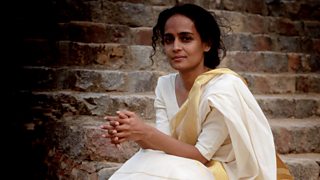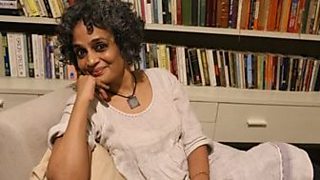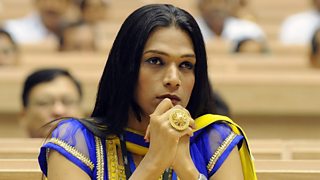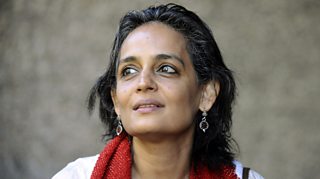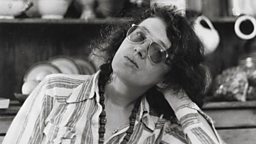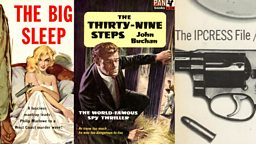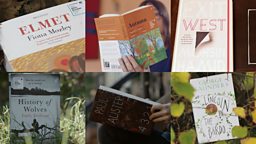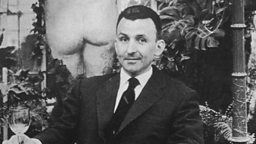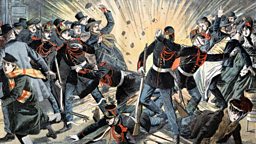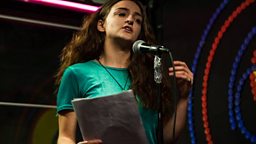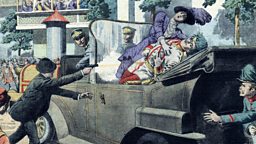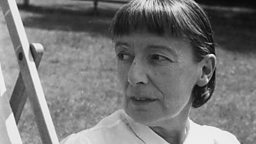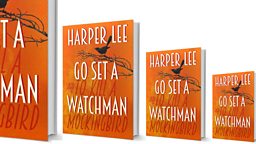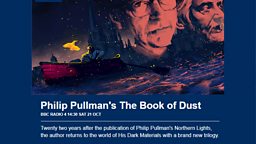Arundhati Roy: A Cause For Happiness
10 June 2017
It has been 20 years since Arundhati Roy's Booker Prize winning debut The God of Small Things was published, so the arrival of her second novel, The Ministry of Utmost Happiness, is the cause of considerable excitement. As ±«Óătv Radio 4 makes it available as a , what do we need to know about this outspoken and internationally acclaimed author?
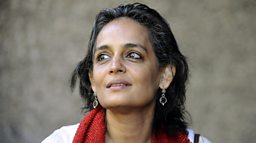
About The Ministry of Utmost Happiness
The Ministry Of Utmost Happiness is Arundhati Roy's first novel since her celebrated debut , which won the Booker Prize in 1997. This new novel takes us on a mesmerising journey from Old Delhi to Kashmir and back, and the lives of a cast of vivid characters are intimately interwoven.
The Story
Anjum unrolls a threadbare Persian carpet in a city graveyard that she calls home, and where she meets an incorrigible young man who goes by the moniker of Saddam Hussain. Then there is the unforgettable Tilo and the three men who loved her, especially Musa, whose fate is heartbreakingly entwined with hers.
The Characters
And also the two Miss Jebeens: the first born in Srinagar and buried, aged four, in its overcrowded Martyrs' Graveyard; the second found at midnight in a crib of litter on the concrete pavement of New Delhi. The corrupting nature of power is brought into stark relief as Arundhati Roy’s characters endure through the darkest of times and still manage to find hope and most of all love.
Arundhati Roy reads from The Ministry of Utmost Happiness
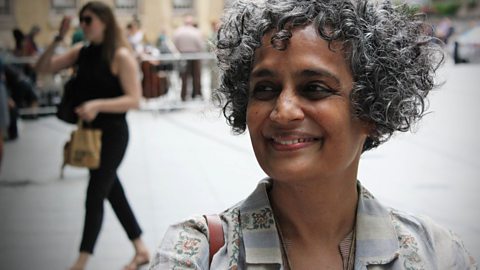
Arundhati Roy: The Ministry of Utmost Happiness
Man Booker winner reads from her first book in 20 years - The Ministry of Utmost Happiness
The Reader: Indira Varma

Indira Varma is well known to television, radio and theatre audiences. She has appeared in a number of television series including Rome, Luther, Silk, Game Of Thrones (as Ellaria Sand), and Paranoid, as DS Nina Suresh.
She narrates . Her many theatre appearances include Man And Superman at the National Theatre and Treatment at the Almeida Theatre, London.
Emilio Doorgasingh reads later episodes. He has extensive television, radio and theatre credits. He has most recently been on stage in The Kite Runner, and also Dara.
Emilio is currently a member of the ±«Óătv Radio Drama Company.

Listen to Book at Bedtime: The Ministry of Utmost Happiness
-
![]()
All fifteen episodes read by Indira Varma are available now
Indira Varma on Twitter
The World of The Ministry of Utmost Happiness
When you read the novel or listen to it as our Book at Bedtime, you'll be introduced to a range of places, characters, events and expressions, in English and Urdu.
Without giving away too much, we can say that an important aspect of the story involves the Indian Hijra community and the central character, Anjum's, place within it.
Abridging The Ministry: by Richard Hamilton
It’s extremely rare as an abridger to meet the author whose work you are about to tackle, especially the day before you begin. But I was lucky enough to be at a pre-launch event for The Ministry of Utmost Happiness with the producer Liz Allard and we were introduced. Arundhati Roy, bright-eyed and disarming, was understandably wary. I mentioned a small section of the novel that might go. She held up her hand with a smile. ‘Don’t tell me. Please - I don’t want to know.’
It’s a heavy responsibility to fillet a writer’s work. My job is to retell the story for the listener in the writer’s words, keeping the best bits, staying true to the atmosphere, the meaning, the rhythms of the original. The Ministry of Utmost Happiness contains many stories - scores of them - it has glimpses of India’s past and a powerful recreation of her present. It has beauty, humour, politics, tension and a tender love story. The characters are built up from small details, while at the same time the great arc of their lives is revealed. How on earth to get all that into 15 X 15 minute episodes?
It requires a certain steeliness. For the first five episodes I needed to keep the character of Anjum, and her life story, at the forefront and allow the other characters – her mother and father, the other Hijras in the Khwabgah – to fall away. Stories of shrines, of the red fort in Delhi, of the international art world and the downtrodden of India fell prey to the blue pencil or were conjured up in a few brief sentences that cried out to stay. I tried to keep as much as I could. I tried to keep the flavor of India, the kaleidoscopic vision of Old Delhi alive.
Only then the novel abruptly veers from the story of Anjum to follow another path. In the second week of the abridgement we switch to a story of Kashmir and four characters Tilo, Musa, Biplab and Naga. It is a love story, but also so much more. A lament for the injustices in Kashmir; an anger at the war waged there, a feeling for the beauty of the place and people. I have had to cut stories that digress from the main thrust and at the same time keep Anjum – whenever she appears – in the listeners’ minds.
Plot comes to the fore but description, motive, complexity must somehow remain. I’m always aware that an actor’s reading gives the author’s words new potency and the narrative and the dialogue are brought vividly to life. In the end I trusted to that and to the undeniable spell that Arundhati Roy weaves with her iridescent prose and magical set pieces. The abridgement is a slimmed-down version, the book after a diet perhaps, but a story and a listening experience that I hope stands very much on its own.
Hijra
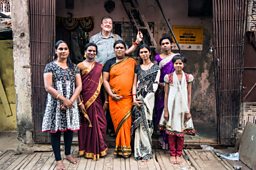
Hijra
Anjum finds a home - and identity - within the Hijra community in India...
In his ±«Óătv documentary , Stephen Fry met members of India's ancient Hijra (male to female transgender) community.
Gauri (in the centre in orange) runs the respite centre and the others are hijras who work with her and to whom she is guru. The young girl on the far right is Gauri's adopted daughter, a biological female.
Being Hijra - The Guardian
Jantar Mantar

In Episode 5, Anjum is in Delhi amongst the political protesters at the , with her friend who goes by the nickname of ‘Saddam Hussein’. First of all though, there is a nativity.
On the pavement, on the edge of Jantar Mantar, the old observatory where our baby made her appearance, it was busy even at that time of the morning.Episode 5: The Ministry of Utmost Happiness, ±«Óătv Radio 4
In our preview clip, you can hear Indira Varma read from the opening of Episode 5:
"She appeared quite suddenly, a little after midnight. No angels sang, no wise men brought gifts. But a million stars rose in the east to herald her arrival. One moment she wasn’t there, and the next – there she was on the concrete pavement, in a crib of litter: silver cigarette foil, a few plastic bags and empty packets of Uncle Chipps. She lay in a pool of light, under a column of swarming neonlit mosquitoes, naked."
Preview: Episode 5
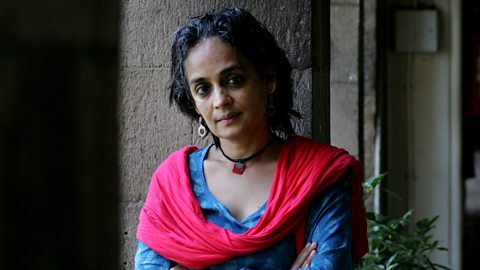
Preview: The Ministry of Utmost Happiness
Read by Indira Varma, a preview of Man Booker prize-winner Arundhati Royâs second book.
Srinigar & Shikaras

Here's a sumptuous passage from Episode 12, which describes travelling by shikara in Srinigar...
The rhythmic sound of oars in the water might well have been the uneasy heartbeat of the ValleyEpisode 12: The Ministry of Utmost Happiness, ±«Óătv Radio 4
"In those days the little city of Srinagar died with the light. The shops closed, the streets emptied. At the bus stop a man sidled up to Tilo and asked her her name. From then on, she was passed from hand to hand.
An autorickshaw took her from the bus stand to the Boulevard. She crossed the lake in a shikara lounging on the bright, floral cushions... The lake was deadly quiet. The rhythmic sound of oars in the water might well have been the uneasy heartbeat of the Valley"
We hope you enjoy listening to - all 15 episodes are now available as a .
In the meantime, the last word goes to the author. Here she is talking with Kirsty Young on Radio 4's Desert Island Discs...
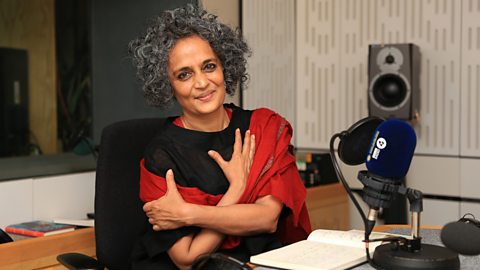
Arundhati Roy: âI was brought up to be boldâ
Writer Arundhati Roy reflects on her childhood.
-
![]()
Hear from the enigmatic author, in conversation at the ±«Óătv and Hay Festival - and read our '7 Reasons To Read Roy'
-
![]()
Arundhati Roy, Booker Prize-winning writer, is interviewed by Kirsty Young for Desert Island Discs.
-
![]()
Arundhati Roy, the Man Booker prize winning author and campaigner is in conversation with Philip Dodd as she publishes her second novel 20 years after The God of Small Things.
-
![]()
Arundhati Roy joins Samira Ahmed to talk about why the time felt right to tell this story now.
-
![]()
The Conversation on ±«Óătv World Service: Being Transgender: Isis King and Abhina Aher
-
![]()
A look back on 10 days of ideas, insight and inspiration in the company of authors from across the literary spectrum.
-
![]()
Author special. Including Arundhati Roy, American thriller writer David Baldaccin's new novel; John Baxter talks about turning books into films; the Orange Prize for Fiction winner Ann Michaels and science-fiction writer Guy Claxton.
-
![]()
Bookclub: Arundhati Roy on her debut novel The God of Small Things

